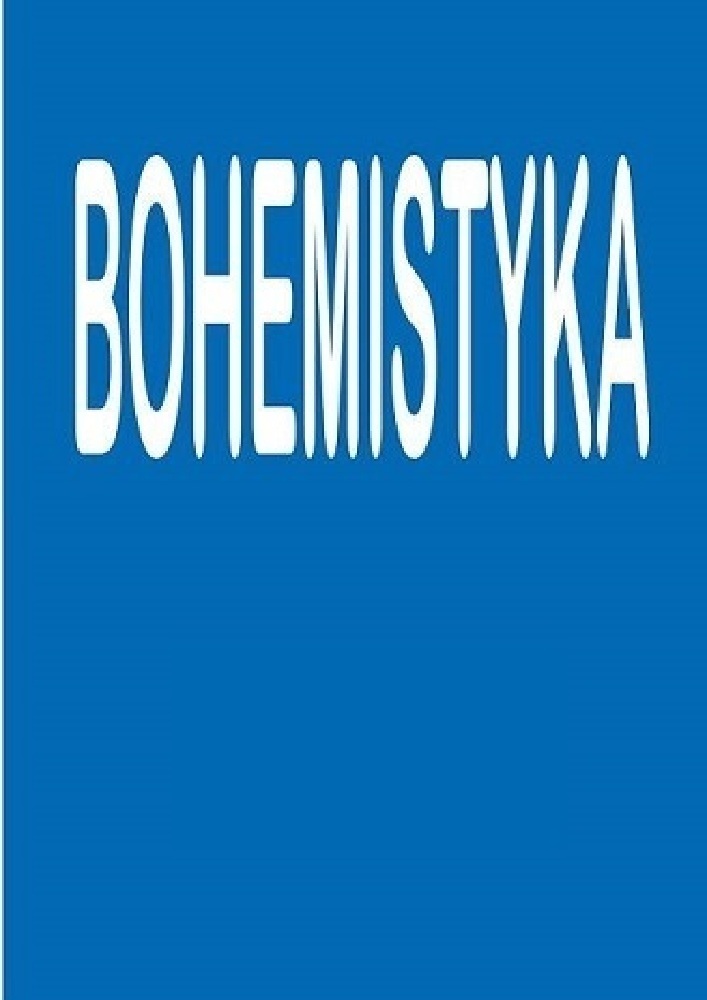Abstract
The Metamorphosis is one of the greatest novels written by Franz Kafka in 1915, which depicts the surreal and absurd transformation of Gregor Samsa into a beetle. Existentialism is borrowed to help interpret the implications of Gregor's transformation. After the transformation, Gregor lives in hatred, dread, absurdity, hopelessness, helplessness and despair. He is isolated, estranged, alienated by his family and the society. Centering on Gregor's transformation, this paper discovers that the authentic existing situation of the underprivileged is entirely revealed in this novella; the pathetic dark side of the human existence is vividly depicted and presented via transformation by Franz Kafka, who meanwhile deeply explores the negative sensations of human existence.
References
Explanation of: “The Metamorphosis” by Franz Kafka. LitFinder Contemporary Collection, LitFinder. Online: link.gale.com/apps/doc/LTF4000000614CE/LITF?u=gdufs&sid=LITF&xid=7d2dece0 [Accessed: 22 Dec. 2020].
Begley, L. (1997). Kafka: the axe for the frozen sea inside us. Proceedings of the American Philosophical Society, 141: 253–262.
Buber, M. (1996). I and Thou. New York: Touchstone.
Crowell, Steven. (2020). “Existentialism”, The Stanford Encyclopedia of Philosophy (Summer 2020 Edition), Edward N. Zalta (ed.). Online: https://plato.stanford.edu/archives/sum2020/entries/existentialism/.
Flynn, T. (2006). Existentialism: A Very Short Introduction, Oxford: Oxford University Press.
Foulkes, A.P. (2020). “Franz Kafka: Overview.” Reference Guide to World Literature, edited by Lesley Henderson, 2nd ed., St. James Press, 1995. Gale Literature Resource Center. Online: link.gale.com/apps/doc/H1420004469/LitRC?u=gdufs&sid=LitRC&xid=ea78be5c [Accessed: 22 Dec. 2020].
Gray, R. (ed) (1962). Kafka. A Collection of Critical Essays. Prentice Hall.
Hartwell, M.J. (2013). “The Metamorphosis.” Short Story Criticism, edited by Lawrence J. Trudeau, vol. 186, Gale. Gale Literature Resource Center. Online: link.gale.com/apps/doc/VBDPWH998028002/LitRC?u=gdufs&sid=LitRC&xid=fb3dc283. [Accessed: 17 Dec. 2020].
Heidegger, M., (1927). Being and Time, John Macquarrie and Edward Robinson (trans.), New York: Harper and Row.
Jiang L.(江澜). (2020). 论作为文本叙述动力的疾病—以卡夫卡的《变形记》为例 [J].The Journal of Guangdong University of Foreign Studies, Guangzhou. 31(02): pp. 47–58, 157–158.
Kafka, F. (1977). Letters to Friends, Family, and Editors. New York: Schocken.
Kafka, F. (2010). Metamorphosis, David Wyllie (trans.), E-BooksDirectory.com.
Kierkegaard, S. (1987). Either/or (Vol. II). Princeton, NJ: Princeton.
Kirschner, S.R. (2012). How not to other the other (and similarly impossible goals): Scenes from a psychoanalytic clinic and an inclusive classroom. Journal of Theoretical and Philosophical Psychology, 32, pp. 214–229.
Klingenstein, S. (2020) “The Metamorphosis: Overview.” Reference Guide to Short Fiction, edited by Noelle Watson, St. James Press, 1994. Gale Literature Resource Center, link.gale.com/apps/doc/H1420004477/LitRC?u=gdufs&sid=LitRC&xid=869559b7 [Accessed 17 Dec. 2020].
Kuhlman, M. (2020) “Visualizing the Unrepresentable: Graphic Novel Adaptations of Kafka’s Metamorphosis.” Short Story Criticism, edited by Rebecca Parks, vol. 290, Gale, 2020. Gale Literature Resource Center. Online: link.gale.com/apps/doc/H1420128749/LitRC?u=gdufs&sid=LitRC&xid=741d2af6 [Accessed 24 Dec. 2020]. Originally published in Drawn from the Classics, edited by Stephen E. Tabachnick and Esther Bendit Saltzman, McFarland, 2015, pp. 205–220.
Sadigh, M. (2017) “The nightmare of becoming human: Metaphors and reflections for individuals in search of authentic self.” Existential Analysis, vol. 28, no. 2, p. 362.
Shi,C.(师彩霞). 2007. 从《变形记》看卡夫卡创作的后现代特征[D].Tianjin Normal University.
Thiher, A. (2020) “The Judgment” and “The Metamorphosis”. Short Story Criticism, edited by Rebecca Parks, vol. 290, Gale, 2020. Gale Literature Resource Center. Online: https://go.gale.com/ps/i.do?p=LitRC&u=gdufs&id=GALE|H1420128749&v=2.1&it=r&sid=LitRC&asid=741d2af6 [Accessed: 24 Dec. 2020]. Originally published in Understanding Franz Kafka, U of South Carolina P, 2018, pp. 98–130.
Wang, J. (王景明). (2013) “异化”的人:评析卡夫卡的《变形记》[J].The Journal of Short Stories, 36, pp.75-76.
License
Copyright (c) 2022 Li Anheng

This work is licensed under a Creative Commons Attribution-NonCommercial-NoDerivatives 4.0 International License.




